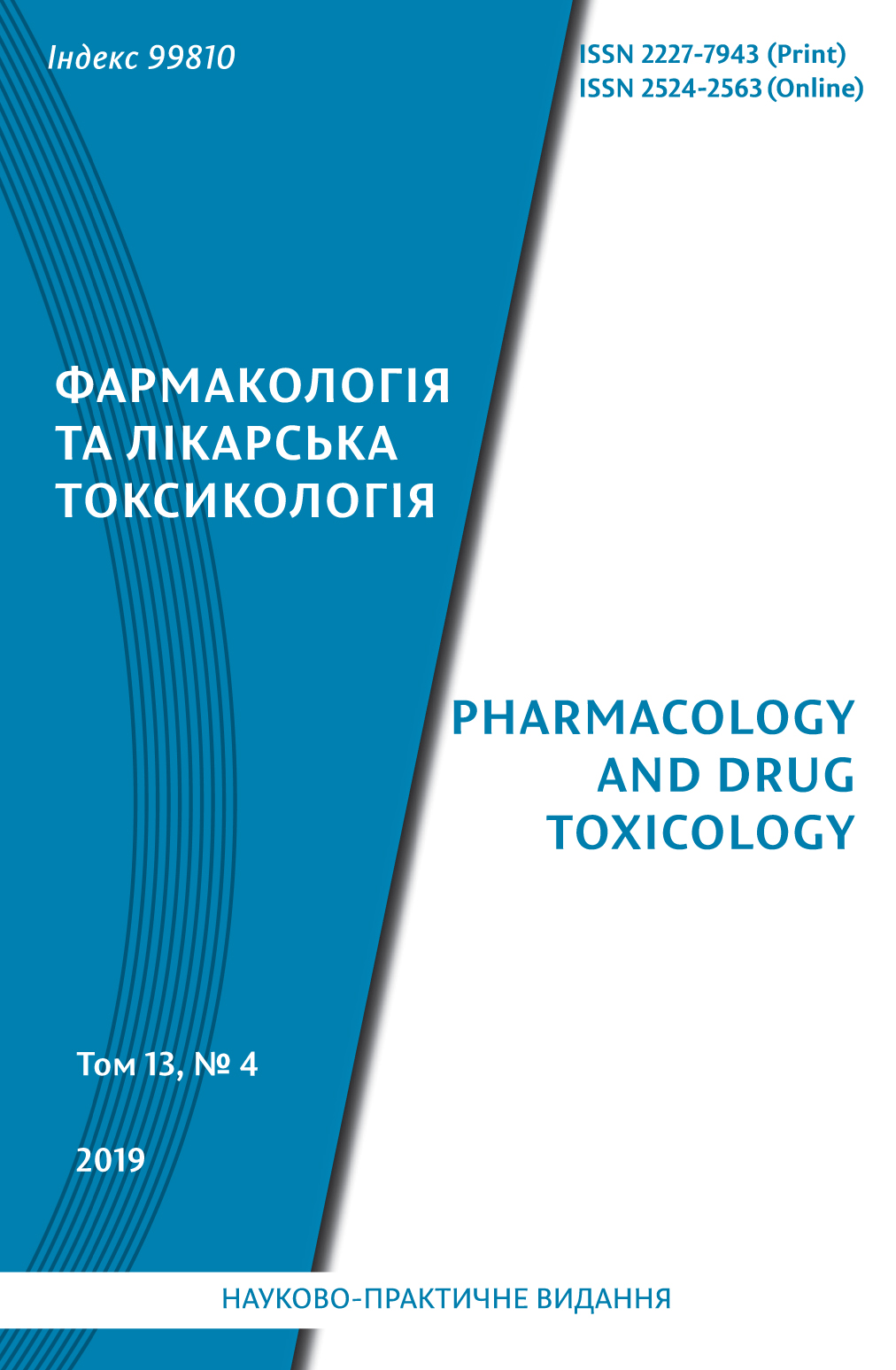Abstract
The purpose of the study is to investigate the аnti-exudative properties of a liquid alcohol-water extract of Sweet Flag leaves (Acorus Calamus L.) (RSVELA) . RSVELA was obtained at the Department of Botany of NPhAU by post-graduate student M. S. Yaremenko supervised by Prof. T. M. Gontova. The аnti-exudative properties of RSVEL were investigated on outbred white rats and performed on the models of carrageenan and histamine induced edema/inflammation. The development of carrageenan induced inflammation/edema was observed at 30, 60, 90, 120, 180, 240 min and after 24 h. The histamine induced model was observed at 30, 60 and 90 min. A digital plethysmometer Panlab (Spain) was used to measure the volume of animal’s paws (cm3). RSVELA (test dose of 0,5 ml/kg) was diluted with water and administered intragastrically. The following drugs were used as comparisons: Diclofenac sodium (8 mg/kg) – classic non-steroidal anti-inflammatory drug; quercetin (11 mg/kg) – phytopreparation with the predominant antileukotriene mechanism of action in the model of histamine induced edema; loratadine (1 mg/kg) – antihistamine preparation with antiexudative effect. The investigational product and comparison drugs were used with the following regimen: intragastrically once daily for 5 days before simulation of inflammation, the last time 1 h before phlogogen injection (carrageenin and histamine, respectively). 24 h after simulating carrageenin and histamine inflammation in animals, clinical blood tests were performed. Leukocyte count and ESR were determined using standard methods. The аnti-exudative properties of RSVELA on the model of carrageenan edema at the level of 10,0–79,5 % at which RSVELA were not inferior in comparison to well-studied preparations: diclofenac sodium (28,7– 80,1 %) and quercetin (4,6–80,1 %) throughout the study period. The anti-exudative activities of RSVELA were observed (maximum inflammation) 68,9 % (p < 0,05) at 120 min and 79,5 % (p < 0,05) at 180 min. After administering RSVELA in the model of carrageenan edema, the level of leukocytes decreased by1,3 times (p ≤ 0,01 as compared with untreated animals), and the ESR decreased by 1,35 times. When diclofenac sodium was used, leukocyte levels decreased by 1,4-times, and ESR decreased by 1,5-times compared with untreated animals (p ≤ 0,01). And when quercetin was used, leukocyte level decreased by 1,2-times (p ≤ 0,05) and the ESR – 1,2 times. Such changes indicate decrease an intensity of the inflammatory process when using RSVELA and diclofenac sodium, and the presence of anti-inflammatory action in quercetin. In the histamine edema model, the anti-inflammatory effect of RSVELA was 50,8; 27,7 and 50,0 %, respectively after 30, 60 and 90 min of simulating edema/inflammation. Also, after administration of RSVELA there was 1,2-times decrease (p ≤ 0,01 as compared with untreated animals) of leukocyte levels and ESR. The degree of the anti-exudative activity of RSVELA is not inferior to all three comparison drugs: diclofenac sodium, quercetin and loratadine, which suggests the ability of the studied extract to have an inhibitory effect on mediators of the early phase of the inflammatory process, mainly biogenic amines. Conclusion: it was found that the RSVELA has an аnti-exudative properties, which were found on the models of carrageenan and histamine induced edema. The data obtained could be used as the basis for further preclinical studies of RSVELA with the aim of creating new effective phytotherapeutic medicine for prevention and pharmacotherapy of inflammatory processes.
